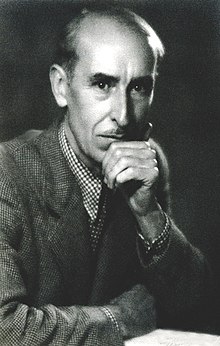Henri Fauconnier
Haviland had arranged the 1874 marriage between the pair after she had married George Boutelleau, Barbezilien poet, playwright and novelist (his family produced and promoted the brandy butter Charente).
In a cultured, artistic Catholic family of six children, Fauconnier lived very freely with his siblings, cousins and friends in the garden and cellars of Musset.
They published a newspaper, and dramas were played on the castle square with text and music written by Fauconnier.
He got an internship at his expense to a planter Klang near Kuala Lumpur so that he could learn the craft and the two essential languages, Malay and Tamil.
He obtained a grant of 600 acres (2.4 km2) and settled in Rantau Panjang in early 1906, when he built his first "Maison des Palmes".
[clarification needed] Thanks to these 20,000 francs, and the funds that his friend Jacques puts into his business, he was able to begin planting.
But nobody expected World War I. Fauconnier married Madeleine Meslier, the sister of a planter who was a childhood friend of Barbezieux, but refused the French Consul's request that he remain where he was to ensure the continued production of rubber.
After a few months in a depot of Périgueux (a place of prevailing squalor, stupidity, and military negligence), he arrived where he would remain as second class in most major battles except for two periods: first, for training officer school at Mourmelon-le-Grand in late 1916, and, second, for leave in Malaysia after his marriage in Charente in March 1917.
Fauconnier was not the only successful writer in his family; in 1933, the Prix Femina was awarded to his sister Genevieve for her best-selling novel Claude.
Fauconnier had hated the Treaty of Versailles: he knew that Europe took the huge risk of repeating the vile war of 1914–18.
He did not suffer unduly during the Depression of the 1930s because of his resources in Malaysia, but he was troubled deeply by the rise of Nazism, fascism in Italy, the conquest of Abyssinia, and the Spanish Civil War.
The postwar period was also difficult, but in 1947 he agreed to be leader of the "Group of Federalists Writers" for the "United States of Europe".
In 1957, he was offered a trip to Malaysia for nostalgia's sake by a society of plantations, which had included the Socfin Rivaud Group.
[1] Afterwards, he settled into a quiet retirement during which he remained busy playing tennis and chess, gardening and swimming, dreaming of an opportunity to resume writing a sequel to Malaisie and continuing his correspondence.
